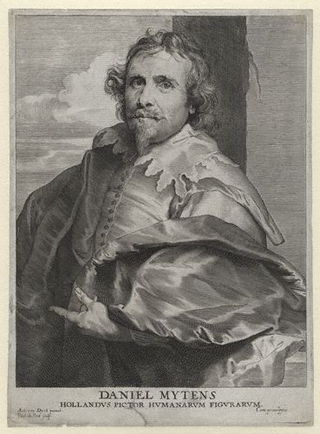
Daniël Mijtens, known in England as Daniel Mytens the Elder, was a Dutch Golden Age portrait painter belonging to a family of Flemish painters who spent the central years of his career working in England.
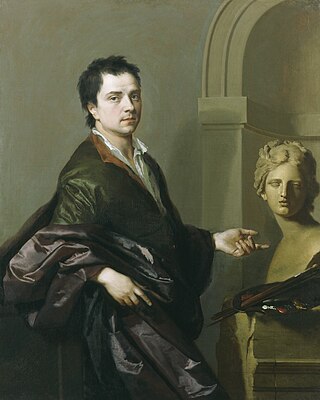
Michael Dahl (1659–1743) was a Swedish portrait painter who lived and worked in England most of his career and died there. He was one of the most internationally known Swedish painters of his time. He painted portraits of many aristocrats and some members of royal families, such as Queen Anne of Great Britain, Prince George of Denmark and the exiled Queen Christina of Sweden.

Pehr Louis Sparre af Söfdeborg was a Swedish painter, designer and draughtsman, most noted for his early work in the Finnish national romanticism and jugend styles. He also competed in the individual and team épée fencing events at the 1912 Summer Olympics.
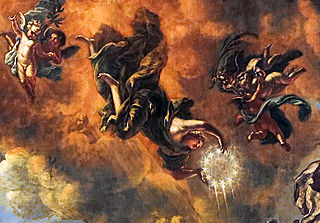
David Klöcker Ehrenstrahl was a Swedish nobleman and portrait painter.
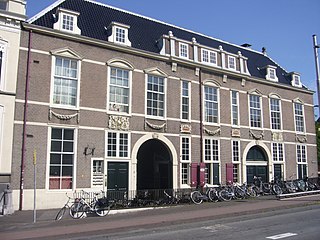
The Confrerie Pictura was a more or less academic club of artists founded in 1656 in The Hague by local art painters, who were unsatisfied by the Guild of Saint Luke there.

Johan Hadorph was a Swedish director-general of the Central Board of National Antiquities.
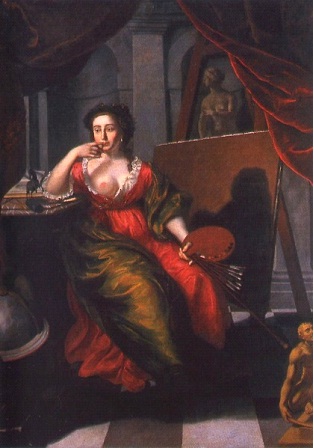
Anna Maria Ehrenstrahl, was a Swedish Baroque painter. She is known for her allegorical works paintings, portraits and group portraits.

David Krafft, from 1719 David von Krafft, was a German-Swedish painter, the nephew and student of David Klöcker Ehrenstrahl and his successor as painter to the Swedish Royal Court.

Johannes Mytens or Jan Mijtens, or "Mytens" to the English was a Dutch Golden Age painter, almost entirely as a portraitist.

Carl Ludvig Trägårdh was a Swedish painter.

Olof Arenius was a Swedish portrait painter.

Countess Amalia "Emilie" Wilhelmina von Königsmarck was a Swedish noble, known as a dilettante artist (painter), amateur actor, and poet.

Juriaen Jacobsz or Georg Albert Jacobsz, was a Dutch Golden Age portrait and animal painter. According to Houbraken he was a pupil of Frans Snyders in Antwerp and a teacher of Hendrik Carré in Leeuwarden. In Leeuwarden he became court painter to Henry Casimir II, Prince of Nassau-Dietz in Leeuwarden. According to the Netherlands Institute for Art History, he was in Antwerp from 1652 to 1658, in Amsterdam from 1659 to 1664 and travelled to Leeuwarden in 1665, where he stayed. His pupils were Hendrik Carré and David Klöcker Ehrenstrahl.
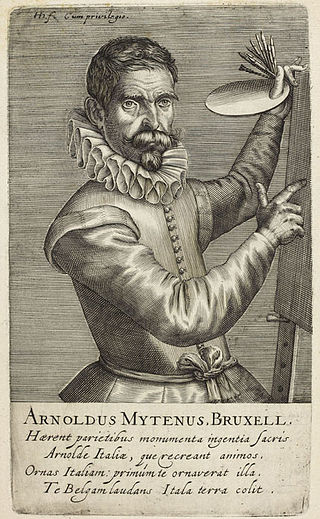
Aert Mijtens was a Flemish Renaissance painter.

Georg Desmarées or Des Marées, was a Swedish-born German portrait painter.

Daniël Mijtens the Younger, was a Dutch Golden Age painter and the son of Daniel Mytens the Elder, although some early sources indicate that his father was Jan Mijtens. His year of birth is sometimes given as 1636 or 1647.

Johan Otto Hesselbom was a Swedish landscape painter.

Johan Edward Bergh was a Swedish jurist and landscape painter, associated with the Düsseldorf School.

Carl Emmerik Skånberg was a Swedish painter. Despite a serious illness that caused him a great deal of suffering, he was a prolific painter and one of the first artists in Sweden to be influenced by Impressionism.
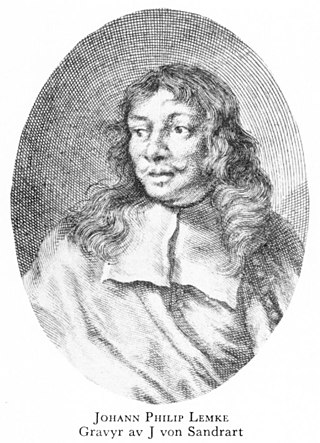
Johann Philip Lemke, also given as Lembke or Lemcke was a German-Swedish graphic artist, etcher and battle painter.





















